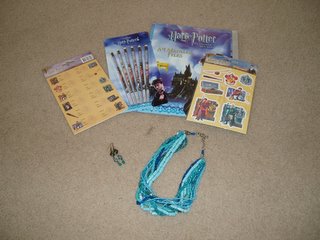I have been meaning to write this post for some time, and conversations that I have had with a few people over the past week have compelled me to write it somewhere other than in my mind.
The furore surrounding the proposed draft of the VCE English Study design some weeks back and more recently the flare up after the VCE English Exam left me feeling perplexed (ok, maybe
completely flabbergasted would be a more appropriate description). There were the predictable missiles fired by the usual neo-liberal suspects that missed the target (see good ol' Kevin's comments in this ridiculous
Australian article, and also some ill-considered attacks by others who I feel would probably not want to find themselves in that category (even though their arguments contained very similar, if not identical, rhetoric). Baden
Eunson's article is one example of this.
Whenever I read these kinds of arguments filled with all the inflammatory, damning, buzz words- 'crisis', 'the basics', 'dumbing down', 'English lite', 'postmodern pus' (ok, yes, I made that one up) and so on, I become increasingly frustrated as I seek to find a 'way in'. I want to understand the position that the writer has adopted and why. I want to reason with them, to question their understandings in order to question and articulate my own. Unfortunately, it is very difficult to do this because of the assumptions that these arguments are built on. Pull those assumptions away and the entire argument comes tumbling down. Here are a couple of examples of these assumptions:
What does this term 'mean' to the people who pepper their writing with it, to the world, to Australia, to communities, to teachers, to students, to me? Is there such a thing? Should
the basics be the same thing for everyone? Do we want our students to arrive at the end of their secondary education and say, "well, at least I've learnt
the basics"? What are
the basics? The 3R's? Grammar, Spelling, Vocab? Are
the basics of the 1960's the same
basics of the 21st century? Should they be?
- These basics are not being taught in Victorian/Australian schools.
Well, if the basics that these writers/politicians continuously refer to are spelling, grammatical structures, punctuation and vocabulary (this is what I assume they are referring to based on my interpretation of the gist of their rhetoric), then I can assure them that these concepts are being taught in secondary English classes. This hasn't changed. What has changed since the 1960's is the way that teachers are teaching and students are aquiring these skills. And thank goodness for that. As teachers, we try to cater for the individuals in our classrooms. Of course, reality can never quite match the ideals we aspire to, but this premise still seems to be a good one.Usually, this means that decontextualised spelling lists and grammar exercises (e.g. change the tense of the verb in this sentence about a boy called Dick riding his bicycle to the general store to collect a pint of milk for his dear mother) about topics that a particular student couldn't care less about isn't considered to be the most helpful approach anymore. (Note: this paragraph is based on the assumption that my understanding of 'spelling, grammar, punctuation and vocabulary' is the same as the writers/politicians/researchers I am critiquing. It isn't, but I won't go into that here.)
- If you can't measure it, bottle it, capture, it, record it... it never happened. In fact, it's completely worthless.
The most frustrating thing about all this is the way that people try to fit a simple template to an incredibly complex and rich process- learning. If we teach X in X way every day for X number of hours then X students will develop X skills to function in X professions. Learning isn't a simple mathematical equation. There are no 'one size fits all' solutions for student learning (and engagement- not that that is worth factoring in here, of course). I find it difficult to understand this desire to simplify and reduce learning communities to banking metaphors- teachers 'depositing' knowledge into students' heads. Why isn't Nelson interested in considering that teachers are professionals who know their students, not mere technicians who can't be trusted to know and understand their students and the communities they work within?
Ugh, I'm sick of this now. Perhaps this isn't an adequate way to argue my point, anyway. Perhaps searching for a 'way in' to this type of reductive thinking- answering back, as it were- only results in defensive arguments, not a powerful and thoughtful exploration of my understanding of learning, engagement and professionalism. Defensive and inadequate arguments are all I seem to have ended up with. I haven't come close to articulating what I really want to write. Perhaps I'm just tired. I'll keep trying though. In other ways, other places, other times.





